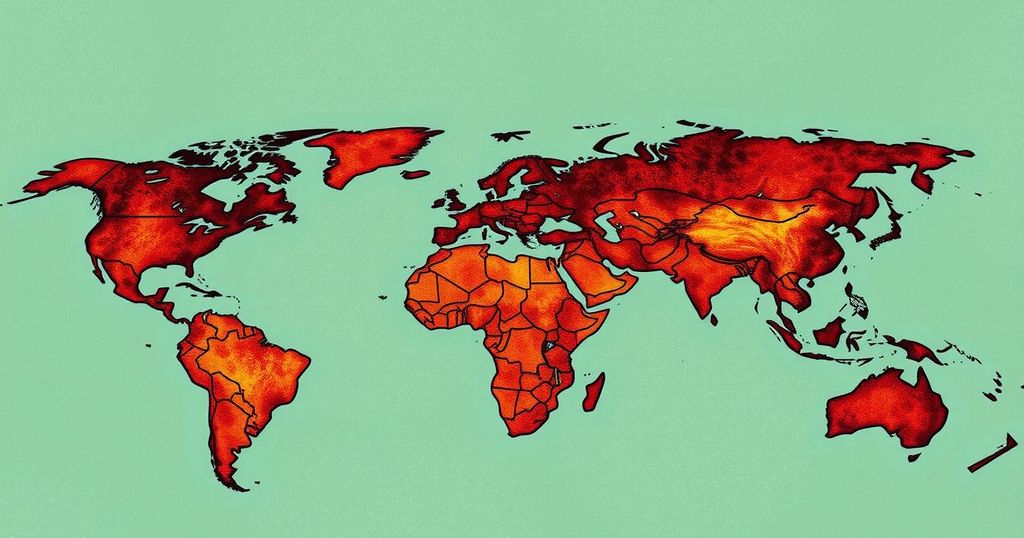Research by SOMO and Human Rights Watch reveals that the voluntary carbon market frequently results in human rights abuses, including sexual harassment and forced evictions within major carbon projects. Notably, the Kasigau Corridor REDD+ Project in Kenya and the Southern Cardamom REDD+ Project in Cambodia have been linked to severe violations without adequate oversight from certifying bodies such as Verra, raising significant concerns regarding the integrity of the carbon offsetting system.
The establishment of a new international carbon market at last month’s climate summit in Baku has elicited significant concern regarding human rights violations associated with voluntary carbon projects. Research conducted by organizations such as SOMO and Human Rights Watch reveals that these projects often inflict harm on the very communities they purport to support. Numerous investigations have documented egregious abuses within well-known carbon initiatives, raising alarms about the integrity of the voluntary carbon market, which allows entities to offset their greenhouse gas emissions by purchasing carbon credits.
Carbon credits are designed to reflect emissions reductions achieved through various environmental projects. Governments and corporations, and increasingly individuals, acquire these offsets in an effort to mitigate their carbon footprints voluntarily. However, serious concerns have emerged regarding the validity and ethical implications of these credits, particularly following findings that many high-profile projects have misrepresented their climate benefits and, in some cases, have engaged in deceptive practices that defraud investors.
An alarming aspect of this market is the relationship between carbon projects and human rights violations. Evidence from various countries, including Kenya and Cambodia, illustrates that projects such as the Kasigau Corridor REDD+ Project and the Southern Cardamom REDD+ Project have led to serious abuses, including sexual harassment and forced evictions. For instance, the Kasigau project reported incidents of widespread abuse by male staff members, yet it failed to address the allegations adequately.
Furthermore, the projects have garnered substantial revenues from the sale of millions of carbon credits to major corporations in various industries. Verra, a leading certification body in the voluntary carbon market, has suspended these projects temporarily for their disregard of human rights violations. However, their reinstatement process has raised questions regarding accountability, as Verra’s reliance on desk-based reviews neglected necessary on-site investigations and direct communication with affected individuals.
The findings indicate that Verra, while promoted as a key player in ensuring integrity within carbon offsetting, has not successfully addressed human rights issues within its certified projects. Statements from Indigenous victims of abuse highlight a systematic failure to provide effective remedy or compensation for the harms inflicted upon them. Furthermore, despite acknowledging the need for safeguards and training programs, Verra admitted it cannot compel project proponents to compensate for breaches, leaving affected communities without recourse.
As the voluntary carbon market continues to expand, the evidence presented underscores a deeply flawed system lacking in necessary accountability mechanisms, ultimately failing the human rights test. Without urgent reforms to address these issues, vulnerable communities will likely continue to suffer from the adverse impacts of these carbon initiatives.
The voluntary carbon market serves as a mechanism through which companies and individuals can purchase carbon credits to offset their greenhouse gas emissions, theoretically contributing to climate change mitigation efforts. However, recent investigations have uncovered significant problems within this market. Many projects have been found to exaggerate their climate benefits or engage in deceptive practices. This has led to increased scrutiny regarding not only the environmental effectiveness of these initiatives but also their social impact, particularly concerning the rights and wellbeing of local communities affected by these projects. Given that a significant number of these projects are certified by organizations tasked with overseeing their integrity, concerns have grown regarding their commitment to upholding human rights standards.
The investigations highlight systemic failures within the voluntary carbon market, particularly concerning the protection of human rights. Projects that are touted as environmentally beneficial are often linked to practices that harm local communities. As major players in the industry, organizations like Verra must confront these serious allegations and implement corrective measures to ensure that the purported benefits of carbon projects do not come at the expense of vulnerable populations. Without genuine accountability and transparency, the voluntary carbon market risks perpetuating injustices rather than delivering on its climate commitments.
Original Source: www.aljazeera.com






